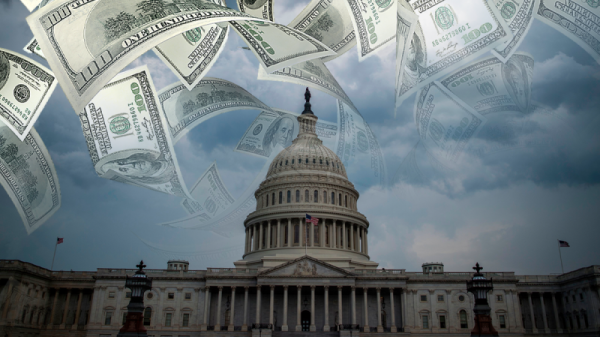Our typical assessments of abortion as a political issue are often overly simplified. The left, Democrats, support access to abortion. The right, Republicans, oppose it. Tension arises.
The reality is that abortion, unlike many other political debates, exists on a spectrum. Some think that abortion should be banned under any scenario. Others think it should be accessible under any scenario. Between sits the vast majority of the country, believing that in some circumstances abortion should be available, however limited or expansive.
Most people in most states think abortion should be legal in all or most cases. Republicans generally do not. In Michigan, for example, where The Washington Post and Monmouth University just conducted a poll, a majority of Republicans said that abortion should be illegal in all or most cases. Michigan Republicans supported keeping abortion generally illegal by a 24-point margin.
We also found an interesting bit of nuance. Among Republicans who said they planned to support Trump in the Michigan primary — more than 60 percent of them — opposition to abortion was even more robust. Within that group, “illegal in all or most cases” was the preference over “legal” by a 30-point margin. But among supporters of other candidates? A majority said that abortion should be legal in all or most cases.
This is certainly because Trump’s support is more heavily rooted in the conservative part of the party in that state. Our poll found that he was the preferred candidate of 8 in 10 Michigan Republican likely primary voters who identify themselves as “very conservative.” Among the most moderate primary voters in the state (which includes some independents), fewer than half backed Trump.
Nor is this the only health-related issue where there’s a gap between Trump-aligned Republicans and others. New research from KFF shows that Republicans who say they support Trump’s MAGA movement are less likely to seek vaccines targeting the coronavirus — or the flu.
Given the results above, you will not be surprised to learn that supporters of primary candidates besides Trump in the Michigan primary are more likely to say that they oppose restrictions on abortion. Supporters of Trump are more likely than primary voters overall to support the most restrictive approach to abortion.
We also asked Michigan Republican primary voters if they thought that their party was too focused on abortion as an issue. Perhaps surprisingly, more than half said they were concerned that the party was. Among those who don’t support Trump, two-thirds indicated that they were at least somewhat concerned about the GOP’s focus.
What isn’t captured here is the extent to which abortion is a central motivation for Michiganders’ votes. It is almost certainly the case for many of them that they oppose restrictions on abortion but not to the extent that they would cast a ballot for President Biden next November.
Instead, this suggests that the pattern coming into 2024 will mirror that from 2016: a sizable chunk of the party will disagree with Trump’s policies and with the priorities of his base — and vote for him anyway.
Emily Guskin contributed to this report.
Our typical assessments of abortion as a political issue are often overly simplified. The left, Democrats, support access to abortion. The right, Republicans, oppose it. Tension arises.
The reality is that abortion, unlike many other political debates, exists on a spectrum. Some think that abortion should be banned under any scenario. Others think it should be accessible under any scenario. Between sits the vast majority of the country, believing that in some circumstances abortion should be available, however limited or expansive.
Most people in most states think abortion should be legal in all or most cases. Republicans generally do not. In Michigan, for example, where The Washington Post and Monmouth University just conducted a poll, a majority of Republicans said that abortion should be illegal in all or most cases. Michigan Republicans supported keeping abortion generally illegal by a 24-point margin.
We also found an interesting bit of nuance. Among Republicans who said they planned to support Trump in the Michigan primary — more than 60 percent of them — opposition to abortion was even more robust. Within that group, “illegal in all or most cases” was the preference over “legal” by a 30-point margin. But among supporters of other candidates? A majority said that abortion should be legal in all or most cases.
This is certainly because Trump’s support is more heavily rooted in the conservative part of the party in that state. Our poll found that he was the preferred candidate of 8 in 10 Michigan Republican likely primary voters who identify themselves as “very conservative.” Among the most moderate primary voters in the state (which includes some independents), fewer than half backed Trump.
Nor is this the only health-related issue where there’s a gap between Trump-aligned Republicans and others. New research from KFF shows that Republicans who say they support Trump’s MAGA movement are less likely to seek vaccines targeting the coronavirus — or the flu.
Given the results above, you will not be surprised to learn that supporters of primary candidates besides Trump in the Michigan primary are more likely to say that they oppose restrictions on abortion. Supporters of Trump are more likely than primary voters overall to support the most restrictive approach to abortion.
We also asked Michigan Republican primary voters if they thought that their party was too focused on abortion as an issue. Perhaps surprisingly, more than half said they were concerned that the party was. Among those who don’t support Trump, two-thirds indicated that they were at least somewhat concerned about the GOP’s focus.
What isn’t captured here is the extent to which abortion is a central motivation for Michiganders’ votes. It is almost certainly the case for many of them that they oppose restrictions on abortion but not to the extent that they would cast a ballot for President Biden next November.
Instead, this suggests that the pattern coming into 2024 will mirror that from 2016: a sizable chunk of the party will disagree with Trump’s policies and with the priorities of his base — and vote for him anyway.
Emily Guskin contributed to this report.





















